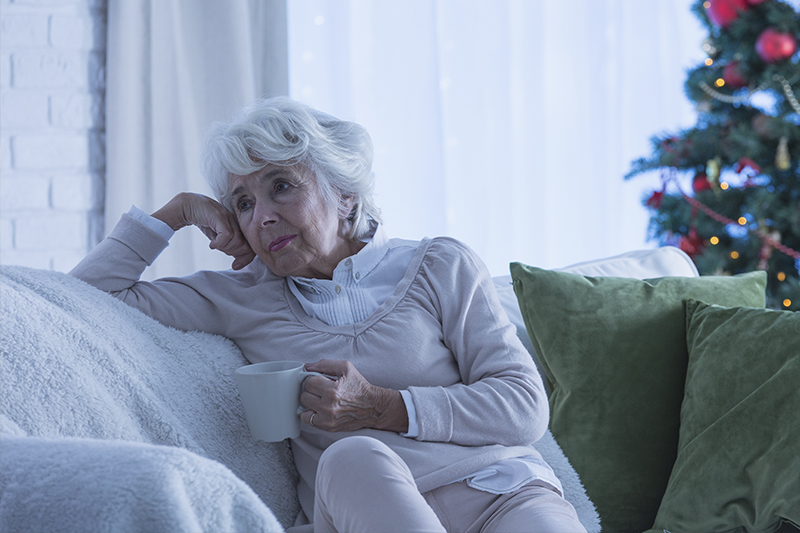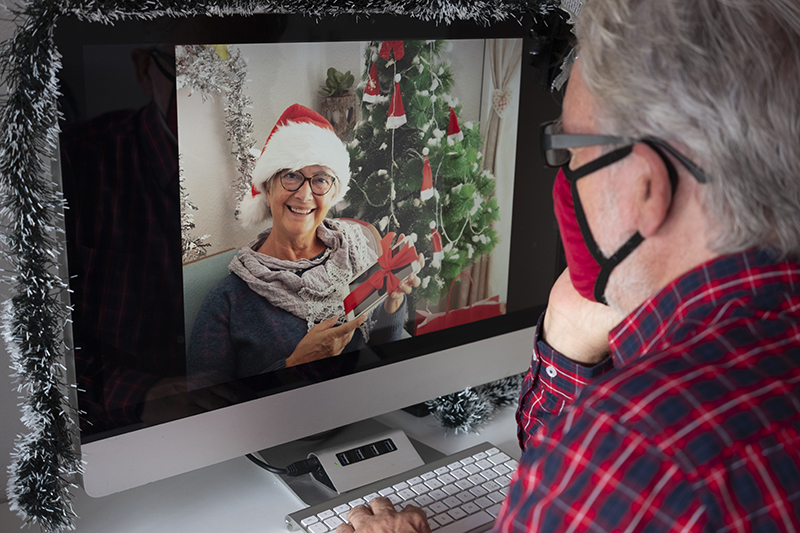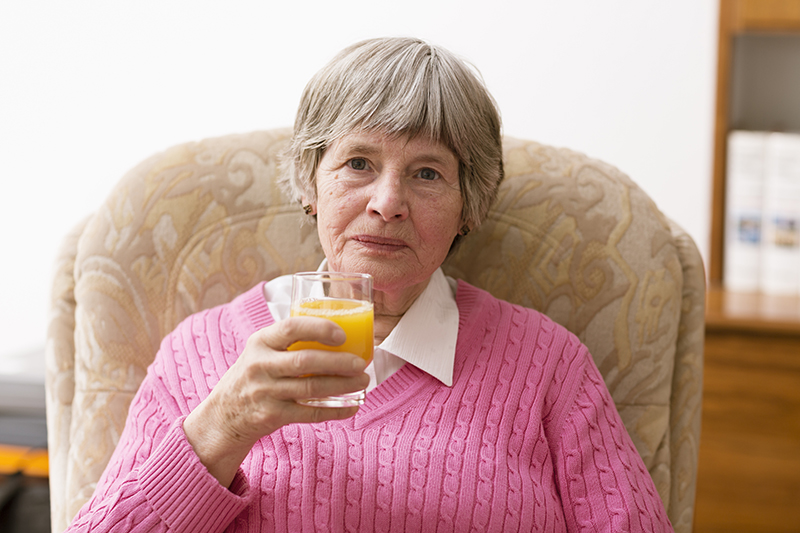
Best Ways to Tackle Depression in Older Adults During the Holidays Although this season is typically viewed as the season of joy, the holidays can create feelings of depression in older adults. Longing for holidays past, despair over the loss of family members, and troublesome changes to health can magnify through the holiday season, and it’s important to take steps to help older loved ones stop the downward slope into depression. Begin by asking yourself these three questions if a cherished older adult you love is feeling depressed this holiday season. 1. Might it be regular nostalgia? Wistful feelings of nostalgia, remembering pre-pandemic holiday get-togethers and celebrations, are normal for all of us. Determine if the senior’s sadness is lifted following a trip down memory lane, or if it lingers no matter the topic of conversation. 2. Is health impacted? If your family member is struggling to maintain a balanced and healthy diet, has trouble falling or staying asleep during the night, is losing weight, and/or feeling exhausted, these could all…

How to Help Your Aging Parents Celebrate The Holidays During COVID-19 Think of the most perfect holiday season you can envision. While that image can vary a little for each of us, it could include lights, gifts, good food, and traditions passed down through the generations. However, what most definitely holds true for all of us is the satisfaction in spending time with the people we love. Unfortunately, the COVID-19 crisis has caused all of us to reconsider how to safely enjoy the holidays with our older family members. With a little bit of ingenuity and creativity, however, it’s possible to bridge the gap and make new memories with the older adults you love, even if you can’t be with them in person this year. Our aging care professionals have gathered a variety of suggestions for how to help your aging parents this holiday season: • Tweak traditions. Consider the traditions that mean the most to you as well as your family, and how you are able to change them to help keep everyone safe. For instance, if everyone usually gets together every year to…

Can a Humidifier Help Seniors Manage COPD? For older adults and those with lung conditions such as COPD, maintaining the best possible air quality in the house is vital. Air that is too dry, for instance, could cause or exacerbate health issues such as: Itchy, dry, or chapped skin Nose bleeds Sore throat Dry eyes Aggravated allergy, asthma, and flu/cold symptoms such as congestion And much more Yet air that’s too humid can cause mildew and mold to develop, which can lead to a host of health problems along with damage to the house. Humidifiers, when used correctly, can help maintain the perfect level of moisture in the air (between 30 – 50%), and especially for people who manage COPD and other chronic lung diseases, can foster easier breathing, reduced irritation of nasal passages, and also the ability to more successfully expel phlegm in coughing. In addition, using a humidifier overnight can decrease congestion and snoring, help reduce the level of any allergens, viruses and bacteria in the air, and even soothe an itchy…

7 Tips to Better Manage Dementia and Incontinence Dementia care calls for both empathy and creativity to deal with an assortment of complex behaviors and effects, and that’s particularly true with regards to incontinence, something that is extremely common in Alzheimer’s as well as other types of dementia. These tried-and-true approaches are generally successful in decreasing the effect of incontinence and preventing an escalation of emotions in someone you love with dementia. Choose your words carefully. Instead of talking about incontinence products as “diapers,” for instance, call them “briefs” or “pull-up underwear.” Having said that, take the cue from your loved one; if he or she prefers to utilize the expression “diapers” and appears more comfortable with that, then follow along. Remove regular underwear from the older adult's dresser. In order to prevent confusion or resistance to wearing incontinence products, make certain that those are the only option in his or her wardrobe. Test assorted products.…

The Exciting New Cancer Treatment on the Horizon We have no doubt about how remarkable our body’s immune system is in fighting invading bacteria and viruses and restoring us to health after an illness. Even so, the current outcomes from a report by Cardiff University are set to generate a new and unanticipated advancement: stopping cancer in its tracks. Scientists uncovered a particular kind of immune cell, a T-cell, located in our blood, which can scan and destroy threats – including an array of cancer cells: ovarian, cervical, blood, kidney, prostate, lung, colon, and many more. And astonishingly, this new cancer treatment left all normal tissue intact. The newly uncovered T-cell works with a particular molecule located on the surface of every cell throughout our body, referred to as the MR1 molecule. The theory is that the MR1 is alerting the T-cell of any cancer cell distortions. Garry Dolton, who was part of the research team, explains, “We are the first to describe a T-cell that finds MR1 in cancer cells – that hasn’t…

Dehydration in Seniors Is More Dangerous Than You May Think. Find Tips to Help Here. Do you realize…roughly 50% of all older adults are chronically under-hydrated, based on a recent research study conducted at UCLA? Not only that, but seniors over age 65 represent the highest category of hospital admissions as a result of dehydration. Dehydration in seniors can sneak up quickly, as older adults frequently have a decreased sensation of thirst, may experience medication side effects that can cause hydration problems, or incorrectly believe that drinking less will lessen incontinence issues. Senior dehydration can be very dangerous, raising the risk for health issues which include: UTIs Kidney stones and/or failure Blood clots Seizures Hypovolemic shock And many more Dehydration is often detected by the following symptoms: Early stages: Reduced amount/darker-colored urine Dry mouth Feelings of weakness, dizziness, and/or tiredness Muscle cramps Irritability Advanced stages: Confusion and disorientation, such as problems with walking Low blood pressure levels and weakened,…



















